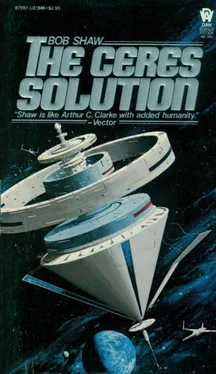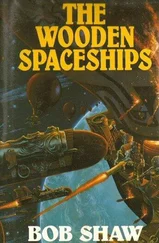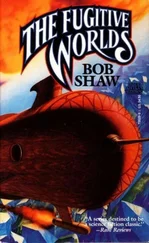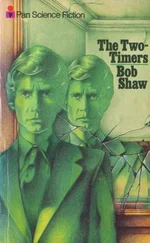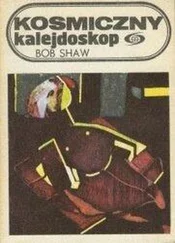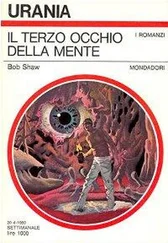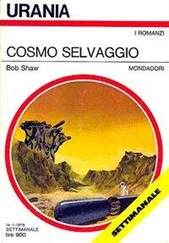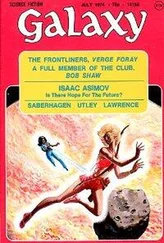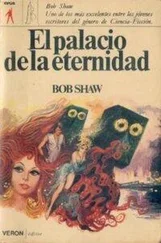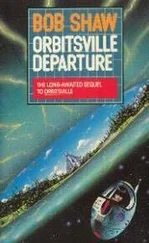“I dare say you are.” Hargate backed his chair off a short distance and raised the Mollanian travel trainer from his lap. “But that’s not the way it’s going to be.”
“What are you saying?”
“I’m saying that you—as well as being a mass-murderer—are a liar, Vekrynn. I’m no psychoanalyst, but I know you don’t really care a shit about preserving the Mollanian culture. You are pathologically afraid of dying, and that’s the real reason for everything you’ve done. Your Notebook is symbolic immortality. You’ve cast yourself in the role of God—overseeing all that happens on Earth, from beginning to end, from Genesis to Revelations—and gods aren’t supposed to die. Are they, Vekrynn?”
Hargate turned his gaze towards the sky and looked at the face of Ceres. It was bloated, poisoned, grinning, visibly swelling. He began to speak faster.
“I’m also saying that you will answer for your crimes right here—not on Mollan. I know that your people don’t believe in the death penalty—but I do. You are looking at your judge, Vekrynn, and I’m sentencing you to death.”
“ No! This can’t…” Vekrynn swayed once in a complete circle, like a monolith that was being undermined. “You don’t want to die.”
“That’s right,” Hargate said, summoning up his lop-sided grin. “But I’m a vindictive little bastard.”
He tensed himself for flight, fearing that desperation might enable Vekrynn to overcome his slow-fading paralysis, but the Mollanian stood perfectly still, transfixed, mumbling. His eyes were locked on the fell apparition that had begun to dominate the lower sky.
Holding the pliant metal of the travel trainer before his face, whispering its mathematical spell, Hargate engaged the drive of his chair and slowly circled around the nodal point to a position from which he could see both Vekrynn and the hurtling mass of Ceres. The asteroid now occupied an area many times larger than that of the Moon as seen from Earth, and its tumbling motion was clearly apparent, giving it an intimidating solidity not associated with celestial objects. It was easy for Hargate, staring at the expanding asteroid, to appreciate that the energy bound up in it would be enough to set the Moon spinning wildly on its axis, to bring about the gravitational destruction of an entire world.
It can’t be long now , he mused. Two minutes, three at the most—then everything will be the way it was before I was born .
He considered the prospect with a kind of wan disbelief, and his consciousness ricocheted away into the past. Again he felt the handgrips of the duralloy crutches become buttery with sweat, again he heard the purposeful drone of insects and rustle of dry grasses. The yellow hillside shimmered before his eyes and the plume of field maples beckoned at its crest against a wind-busy sky. He was going again to Cotter’s Edge, to the secret place, and there he was going to meet…
“Gretana!” He called her name involuntarily as the slim, auburn-haired figure—looking exactly as she had done when he was twelve years old—materialised at the nodal point close to Vekrynn, as though he had conjured her by the sheer force of his nostalgic longing. She glanced once at Vekrynn, who was still lost in communion with his blind executioner, then came running towards Hargate. Boosted by the weakness of the lunar gravity, she covered the intervening ground in two precarious steps, lost her balance and pitched on to her knees at Hargate’s side, gripping the arm of his chair for support. The miracle of her presence swamped his senses.
“You’ve got to let Vekrynn go,” she pleaded, green eyes seizing on his. “You’ve done enough, Denny—hundreds of people at the habitat heard what he said.”
“That isn’t enough,” he said dully, wondering how he could deny her anything. “Not for Vekrynn.”
“But you don’t want to be a killer.”
“You’re wrong, Gretana.” He reached out and touched the face that had haunted most of his days, then a new kind of fear geysered through his mind. “For God’s sake, get out of here! Get away from this place!”
Almost smiling, she touched the gleaming sculpture of the travel trainer. “How can I, Denny? You’re holding me here.”
Hargate sobbed once in his anguish as he collapsed the artifact into the neutral configuration.
He tried to beg Gretana to run for the nodal point and save herself, but the words died in his throat as he looked beyond her and saw the monstrous, glowering countenance of Ceres now filling an eighth of the sky.
For a moment he tried to resist as Gretana swung herself round to the back of the chair and began pushing him in the direction of Vekrynn and the node, then he realised she was not going to let go and that his suicidal perversity was threatening her life. He urged the chair forward, and Ceres swelled hugely, rushing to meet them, completely outlining the motionless figure of Vekrynn.
Hargate felt Gretana’s left hand close on his. Obeying her unspoken command, he snatched for Vekrynn’s hand, but a shrilling, gibbering voice told him it was already too late… because the whole sky was a convexity of falling rock…
Within twenty seconds of skording to the Bureau’s nearby habitat, Gretana had positioned the wheelchair at one of the solid-image projectors which were providing the Mollanian engineers with a magnified view of the Moon.
But by that time Ceres had already kissed the surface of the Sea of Storms, and had half-exploded, half-blossomed into a spray of whirling fragments which were racing on divergent courses towards the outer darkness of the solar system.
And, although it was not immediately apparent, the Moon had been jolted out of its aeons-old quiescence, and had begun to spin. Destructive stresses were sundering ancient geological strata as they sped towards the Moon’s core.
Hargate watched the spectacle in silence, rediscovering the meanings of words like awe and blasphemy and pride, then he looked up at Gretana. “Do you think Lorrest is right?” he said. “Is this the start of a new age?”
“I don’t see how anybody can hold it back,” she murmured. “Not now. Not on Earth. Not on Mollan.”
“In that case maybe I’d like to go back to Earth, after all,” Hargate said reflectively. “Just for a while.”
It was late afternoon in mid-winter, and a hard clear darkness had moved in over Carsewell and the neighbouring borough of Star City.
Gretana paused on the steps of the Mollanian Embassy to button up the collar of her overcoat, her gaze drifting across the electrically-jewelled architecture of the diplomatic and trade buildings of more than thirty worlds. They were arranged in sweeping crescents around a park containing the low hill which had once been known locally as Cotter’s Edge. In some respects it would have been more convenient to have Star City close to Washington, D.C., but new priorities had dictated that it be built around a major east coast node. Gretana found the ambience of the scene reassuring and, as always, she was prompted to look for a moment at the sky.
The stars were only faintly visible through the wash of urban radiance, but the swarms of irregular moonlets that formed the horizon-to-horizon band across the heavens shone with undimmed lustre. Dissolution of the old Moon had been accelerated by enlightened U.N. policies—all companies to whom mining franchises were awarded had to assist in equalising the orbital distribution of the lunar mass. As a result, even a Mollanian with Gretana’s perceptiveness could sense no real disturbance in the matrix of third-order forces. It was now possible for embryos to grow in peace, for babes to be born in peace.
Читать дальше
